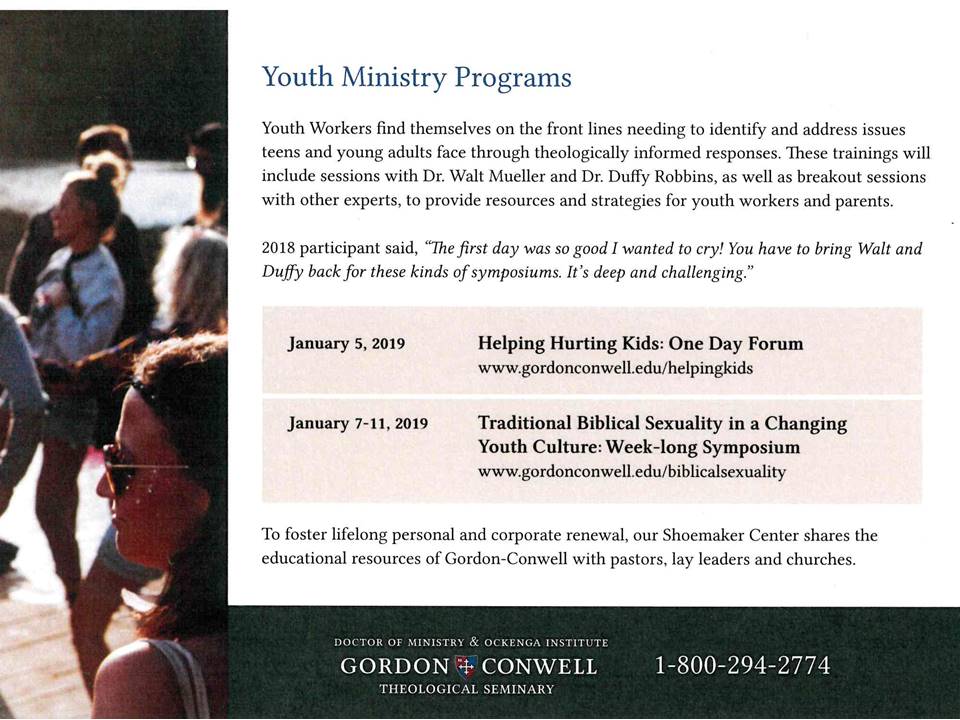
A few years ago I read Dennis Hollinger’s book, The Meaning of Sex: Christian Ethics and the Moral Life. Accessible and practical, Hollinger lays out a clear theology of sex, sexuality, and gender that is faithful to the traditional and biblical view. This morning, I revisited all of my underlines in the book (quite a few) and encountered this: “Sexual distortion begins with rejecting God’s design for sex by assuming that there is a deeper knowledge and experience to be had than what the Creator has given. . . . Since the fall we have assumed that we know better than God, and that the sexual longings within should not be limited to the intentions and parameters laid out at creation. The human heart and physical impulses linked to the hear want their own way, seeking to replace God’s creational designs with human wisdom and self-centered pleasure” (p. 80).
Read Dennis Hollinger’s words again. Then, think about this: for those of us who are followers of Christ, we tend to think about and respond to the sexual brokenness of others, rather than recognizing and thinking about the unique way that sexual brokenness is evidenced in our own life. All humanity and every nook and cranny of life are broken. And yes, this includes our own sexuality. The need to address sexual brokenness is both an outward and an inward endeavor. . . . with the latter being our starting point.
John Newton once wrote this little reminder of our need for self-understanding and the resulting humility: “The more vile we are in our own eyes, the more precious He will be to us; and a deep repeated sense of the evil of our hearts is necessary to preclude all boasting, and to make us willing to give the whole glory of our salvation where it is due.” I find his reminder quite helpful as I work to navigate this emerging landscape of sexuality and gender with theological integrity and without arrogance.
At the beginning of January, my good friend Duffy Robbins and I will be meeting for four days with a small group of youth workers (25 max) on the beautiful campus of Gordon-Conwell Theological Seminary for a highly interactive symposium on “Traditional Biblical Sexuality in a Changing Youth Culture.” The dates of January 7 to 10 and you need to register soon to secure your place. You can learn more and register here.
Two of last year’s symposium attendees shared these words about their experience. . .
“Sitting in one room for a whole week, surrounded by so many contexts and years of experience, focusing all this on one issue impacting youth ministry – I never would have been ready for the issues I’ve had to deal with in my youth group this year if God hadn’t led me to attend the symposium in 2018.”
“If you’re looking for time and space to process the important practical concerns surrounding human sexuality, this week-long conversation is for you. Even more so, the symposium provides friends for the journey—colleagues in ministry wrestling with the same tough questions, as well as humble, capable guides in Walt and Duffy. This experience was invaluable for 21st century engagement as a minister of the gospel.”
